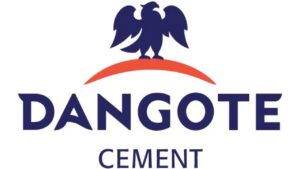Related Articles
 Dangote Cement, one of Nigeria’s largest indigenous companies and the largest by market capitalization incurred a company income tax of N97 billion for the financial year ended December 2020.
Dangote Cement, one of Nigeria’s largest indigenous companies and the largest by market capitalization incurred a company income tax of N97 billion for the financial year ended December 2020.
This s according to the information contained in its full-year audited financial statements for the period under review.
Dangote Cement has enjoyed Pioneer Status over the years and has often been criticized for not paying enough taxes despite its mega-profits.
The N97 billion incurred in 2020 is the highest company income tax reported by Dangote Cement since it became listed on the Nigerian Stock Exchange.
It incurred N49 billion in taxes in 2019 and got a tax credit of N89.5 billion in 2018.
Despite incurring N97 billion in taxes during the year, Dangote Cement’s actual tax paid was just N20.9 billion in 2020 compared to N4.6 billion paid a year earlier.
Tax incurred in the profit and loss statement is an accounting provision and is not always the actual tax paid in cash.
Putting it into context, the dividend paid during the year is N272 billion and interest payments to its creditors totals N48.2 billion.
Despite the Covid-19 Pandemic, the Cement Giant reported full-year revenue of N1 trillion, the highest it has ever recorded since it was privatized almost 20 years ago. The company also reported a profit before tax of N373.3 billion only and a profit after tax of N276 billion, its highest since 2018.
Nigeria like most countries in the world has faced a challenging 2020 due to the impact of Covid-19 on the economy, especially the private sector. However, mega-corporations like Dangote Cement appear to have even performed better during the year. The cement industry in general also appears to have performed well during the year as the combined revenue of the top 3, Dangote Cement, Lafarge, and BUA rose to N1.47 trillion from N1.28 trillion.
The impressive result nonetheless, Dangote Cement’s margins remained strong during the year posting a gross profit margin of 57% in line with its 3-year averages. However, the higher taxes incurred in 2020 dropped profit margins to 26.7%. When compared to 2018 when it still enjoyed Pioneer status, the company posted profit margins of about 43%.
 SocietyGazette.com Society Gazette News
SocietyGazette.com Society Gazette News




